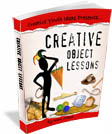
A Typical Kampung House
During the early days of Singapore, the headman of a “kampung” (a small cluster of houses akin to a small village) lived in a nice house with his children. He and his family were happy, with many nearby neighbors who were true “friends.”
One day, as the headman sat on his front porch, a stranger arrived at the kampung from the jungle. The traveler was looking for a new place to live, so he asked the headman, “What kind of neighbors do you have?” The headman answered with a question of his own: “What kind of neighbors did you have at the last place you lived? “They were cranky, unfriendly, and cantankerous,” the traveler replied. “Well, I’m afraid you’ll find the same kind of neighbors here,” the headman told the traveler. So the man moved on, looking for a better place to live. The next day another man stopped at the headman’s home. That traveler also was looking for a place to live. He too asked about the residents in the kampung. The headman asked him the same question, “What kind of neighbors did you have at the last place you lived?” “My neighbors were the nicest and friendliest neighbors in the world,” the traveler replied. “Well, you’ll find the same kind of neighbors here, too,” the headman said.
So the second traveler decided to stay, and he found great neighbors. The first traveler settled a day’s journey away, and rumor has it that eventually he became involved in a feud with his neighbors. The headman knew that if the first traveler became his neighbor, trouble was likely because the traveler had a history of problems with neighbors. On the other hand, he knew that the second traveler was more likely to be a good neighbor since he had a history of positive relationships. Events proved him right.
What was the difference? The difference was in the two travelers. One was neighborly, and one was not.
A Chinese proverb says, “Do not remove a fly from your friend’s forehead with a hatchet.” The saying points out that we can say and do things in ways that harm our relationships with others. And, when people react to us in a negative manner, we blame them. But the problem originated with us. We are commanded “To love your neighbor as yourself” We each have a personal responsibility for establishing and maintaining healthy relationships.
Which traveler reflects you in the story?
A letter from your Church.
I am your church. Make of me what you will. I shall reflect you as clearly as a mirror. If outwardly my appearance is pleasing and inviting, it is because you have made me so. If you find my spiritual atmosphere to be kindly yet earnest, reverent yet friendly, worshipful yet sincere, sympathetic yet strong, divine yet humanly expressed, it is but the manifestation of the spirits of those who constitute my membership. But if you should by chance find me a bit cold and dull, I beg of you not to condemn me, for I show forth the only kind of life I shall receive from you. I have no life or spirit apart from you. Of this may you always be assured: I will respond instantly to your every wish, practically expressed, for I am the reflected image of your own soul. Make of me what you will.
Food for thought
- What are some of the characteristics of the ideal church? The ideal Youth Group?
- What is the current environment or atmosphere of our church?
- In what practical ways can a person make our church, one of care and concern? The youth group?
- What are you personally doing to make this happen?
- Through which activities/ programs can you show this care and concern?
- In what ways do you need to change in order to make your church one that cares?
Scripture
Read through the 7 churches at the beginning of the book of Revelation.
- What were some of the characteristics, affirmations, and criticisms of those churches?
- Which church is most like ours?
- What are some things we can learn to make our church one of which Christ would be pleased?
 MORE IDEAS? See “Creative Object Lessons”
MORE IDEAS? See “Creative Object Lessons”
200 page e-book that explains everything you need to know when planning your very own object lessons. It contains 90 fully developed object lesson ideas and another 200 object lesson starter ideas based on Biblical idioms and Names / Descriptions of God.
